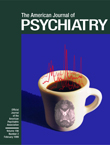How Do We Know Who We Are? A Biography of the Self
This is an interesting book by an interesting author. Dr Ludwig has a prodigious knowledge of events in the lives of people. His book is densely referenced. On some points he lists up to a dozen references, which may include scientific journal articles, monographs, biographies, and historical and literary texts. Some of the journal articles and one of the books are his own, dating back to the 1960s and his research into LSD in the treatment of alcoholism.
Dr. Ludwig has a particular interest in biography. He has read 25 separate biographies of Marilyn Monroe and gives their publication details. He has conducted comprehensive interviews with 21 biographers who have written about a wide range of people.
Dr. Ludwig presents his account of human nature and his concept of the self. To support his position, he draws heavily on the opinion of biographers, whom he describes as “experts on the construction of character.” Although biographers can safely be assumed to be intelligent and well informed about the individuals they describe, many readers may find difficulty in accepting them as such experts.
Valuable chapters deal with the psychopathology of Sigmund Freud and address the question of how Hitler lived with himself. A less pleasing chapter deals with “What Madness Reveals.” There is a lack of definition and terms in this chapter; “losing your mind,” “going mad,” and “mentally falling apart” are used interchangeably. Dr. Ludwig contends that “natural experiments with madness” reveal that the self comprises “me” and “I” subsystems.
This is a unique view of the self, from a man of learning and experience. It will be of great interest to the general reader and students of psychiatry who need to round out their education. There are many insights into the lives of a wide range of people, not to mention the pioneers of LSD therapy, including gems from the author’s personal experience with the drug, “There was no future and no past. The present was eternity.”



